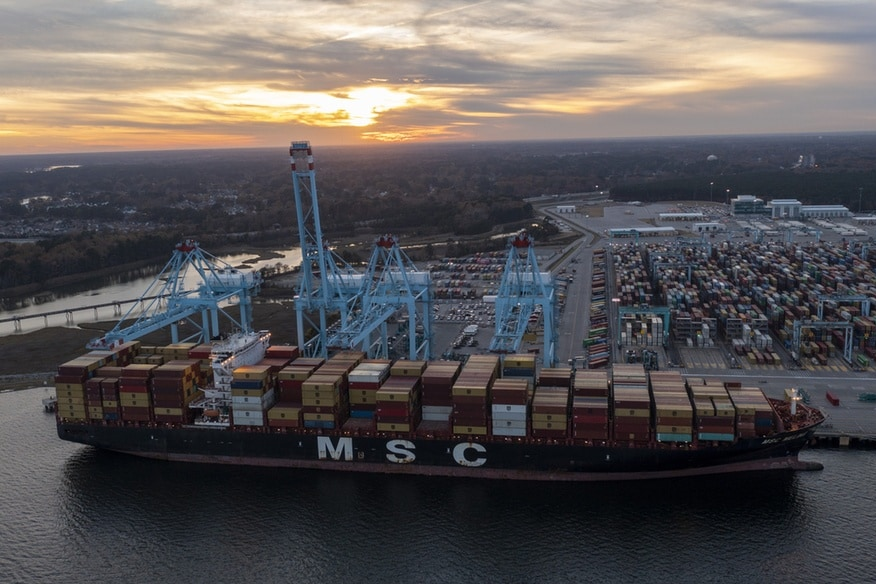
The pandemic has created major challenges at ports delivering goods around the world. Copyright 2021 The Associated Press. All Rights Reserved
Swiss economic experts expect a significant economic slowdown as supply chain bottlenecks, inflation and pandemic restrictions persist in many parts of the world.
On Thursday, the State Secretariat for Economic Affairs (SECO) announcedExternal link that the economic expert group has lowered the growth forecast for Switzerland for 2022 to 3% from 3.4%. It expects a growth rate of 2% for 2023 as “the economy normalises”. This would still be an above-average growth rate.
While the Swiss economy has recovered well in the first half of the year with GDP rising above pre-crisis level of Q4 2019, SECO writes that “international supply and capacity bottlenecks are putting pressure on the industrial sector and causing sharp price increases globally”.
Inflation in Switzerland is predicted to increase moderately to 1.1% on average for the year due to increased prices for energy and materials. Inflation rates are expected to peak in the current winter period. The Swiss inflation rate is still lower than global average. The inflation ratExternal linke in the United States was 6.2% in October – the highest in more than three decades.
The uncertainty surrounding the pandemic, most recently in connection with the Omicron variant, also pose risks to the economy. Assuming there are no severe restrictions such as lockdowns, economic recovery is not, however, expected to come to a standstill in the medium term.
The expert group expects the situation to improve in the middle of next year as supply chain problems dissipate and consumer spending, investment and exports increase.
However, the recovery could be delayed further if global capacity bottlenecks last longer and inflation leads to more price pressure and higher interest rates. If China’s real estate sector falters, this could also weigh heavily on the global economy, with consequences for Switzerland.
Full story here Are you the author? Previous post See more for Next postTags: Business,Featured,newsletter



























